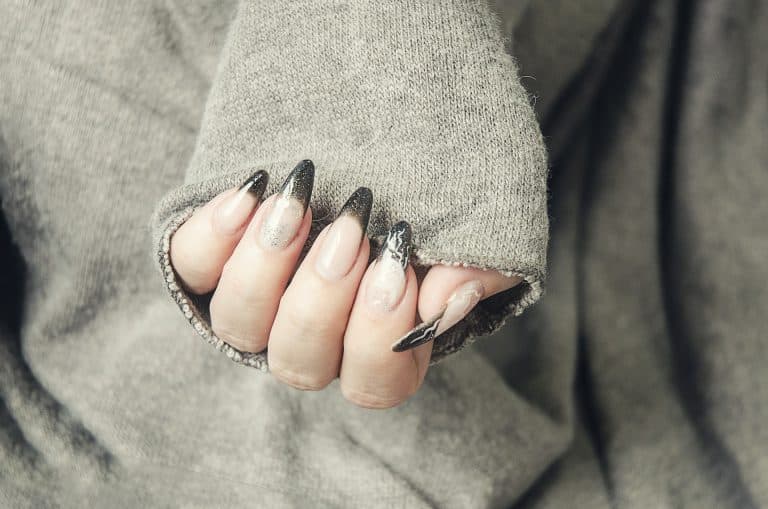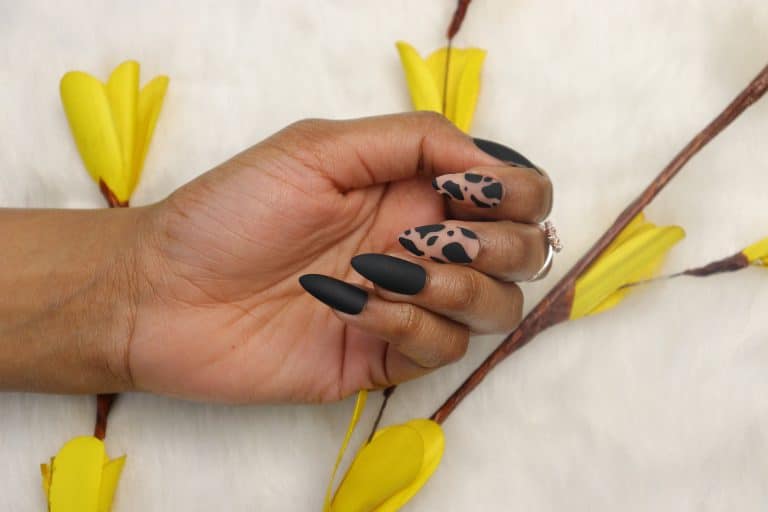How to get healthy nails?

Healthy, strong nails not only look great but signify that your body is also doing great. Unfortunately, you may see dents, ridges, or unusual shapes and colours on your nails. Most of these issues can be corrected with proper nail care. However, some of the symptoms indicate an underlying condition that needs medical attention.
Table of Contents
What entails healthy fingernails?
Fingernails are composed of a protein called keratin that emerges from the base of the nail under the cuticle in laminated layers. A healthy nail does not have any grooves and pits. Instead, it is smooth, has even colour and is free of spots.
You may notice a harmless vertical ridge that grows from the cuticle to the tip of the nail as you get older. This is not a sign of nail damage. Some people also develop white spots on their nails due to injury. However, these spots grow out of the nail with time.
As explained earlier, some nail conditions require medical attention and no amount of nail care and healthy lifestyle can resolve issues related to them. Here are a few of such conditions:
• Thickening or thinning of the nails
• Failure of the nails to grow out
• Bleeding around the nails
• Changes in nail colour, causing discolouration of your entire nail or resulting in dark streaks under the nail
• Pain and swelling around your nails
• Separation of your nail from the surrounding skin
• Bleeding around the nails
Seek medical attention as soon as you notice any of the above conditions. It may help prevent the progression of the underlying condition or make treatment much easier.
Ways to keep your nails healthy
Here are a few tips on how to get healthy nails.
Moisturize your hands and nails
Like any other part of your body, your nails require moisturisation to maintain their integrity. Moisturisers also prevent impairment and cracking of the skin surrounding the nail, thereby preventing bleeding and swelling. You may also use nail ointments, which nourish the nails and lock in moisture to prevent future damage.
If you have weak nails, you may opt for cuticle oil to nourish, repair and moisturize them. Dermatologists recommend oils that have a high concentration of shea oil for your cuticles. These oils help prevent regular breakage and soften the cuticles to enable normal growth.
Avoid nail removers that contain acetone
Some nail polish remover manufacturers add acetone to their nail polish removers to speed up the removal process. The solvents work with lightning speed, but they are also harsh on the nails. It can dry the nails or even cause conditions such as splitting, peeling and the appearance of white spots.
In its place, consider essential oil-based polish removers, which are gentle on your nails but still remove the nail polish quickly.
Keep the fingernails dry and clean
Ensure that the fingernails are clean to prevent the growth of bacteria underneath. If your life involves working with water for extended periods of time, consider wearing cotton-lined rubber gloves to protect your fingernails. You should use similar protection when using harsh chemicals for cleaning and other activities.
Prolonged exposure to water may contribute to the pitting and splitting of your fingernails. It may also make conditions favourable for bacteria to thrive underneath your nails. In addition, the liquids strip nails of their natural oils, causing them to get dry and weak.
Practice proper nail hygiene
Always keep your nails at a preferable length with well-rounded edges. If possible, keep your nails short, as they are easier to clean. Besides, shorter nails are less likely to get cracked, split, or chipped. When trimming your nails, use sharp manicure clippers, cut nails across and then curve the tips to make a gentle curve.
In addition, always file your nails in one direction. The back-and-forth motion is likely to weaken the nails and possibly cause them to chip away. You should also go easy on the sides of your nails to avoid causing them to crack.
Take special care of weak nails
If you have weak nails, you may need to add a few interventions to ensure that they are protected from damage as you carry out your regular activities. First, avoid overdoing the hand sanitiser. Since sanitisers are alcohol-based, applying them to the nails regularly can really dry out your nails, which causes them to become brittle.
You may consider using alcohol wipes instead or avoiding applying sanitisers to your fingernails. If this is not possible, use a moisturizer as many times as you use a hand sanitiser to replenish the lost moisture.
Dermatologists also recommend nail hardeners for people with weak nails. These hardeners add a protective layer to the nail, preventing it from becoming brittle and prone to damage. You can apply a hardener as a foundation before applying nail polish.
Take some biotin supplement
Biotin, also known as Vitamin H, is a B7 vitamin. This vitamin is water-soluble. Therefore, it is not stored in the body and has to be consumed regularly.
The vitamin helps strengthen your hair and nails, besides enabling the nervous system to perform properly. You can take a biotin supplement. However, it is also found in legumes, eggs and sardines. Talk to your doctor about the safety of the supplement before taking it!
Eat Healthy and stay hydrated
Nails need nourishment like any other part of the body. You need to have a varied diet that includes proteins, minerals and vitamins. If your diet is deficient in these nutrients, you may experience pitting, dry nails and scary skin around your nails.
Your nails also require lots of calcium, which is found in dairy and bone soup, to stay strong. Do not forget the biotin-rich foods that we discussed earlier.
On the other hand, make sure you’re getting enough water. The amount of water you should drink is dependent on your body, the weather, and the activities you are doing.
Without adequate intake of water, you are likely to have brittle nails or ones that peel easily. You can use hydration apps and calculators to find out how much water you should drink.
Minimize acrylic and gel manicures
In the beauty industry, acrylic manicures are offered as an alternative for people that have difficulty growing their nails. However, frequent exposure to acrylic manicures often causes the nails to peel, which thins and weakens them.
Exposure to the UV light used in gel polish is considered a risk factor for cancer, although quite minimal as the intensity of the light is much lower. However, regular exposure ages the skin around your nail, making it weak.
Besides, you will have to be exposed to high amounts of acetone as you will need to keep removing polish from time to time and expose them to the dangers that we discussed earlier. If you wish to use these types of manicures, do them on rotation so that you give your nails time to repair and replenish lost moisture.
Go for non-toxic nail polishes
You should avoid nail polishes that contain such chemicals as DBP, formaldehyde, and toluene. These are harsh chemicals, especially on weak nails. Nail polishes without these chemicals are called “3-free” and have this on their label.
There are also brands that are called “5-free” and “7-free.” In addition to the three harsh chemicals, these two types do not also contain TPHP, camphor, xylene and formaldehyde resin.
Apply top and base coats
If you have weak nails, base and top coats provide your nails with an additional protective barrier from problems like breakage and dehydration. They also leave your nails protected and nourished. We recommend these treatments to people who are regularly exposed to a dry environment, water and chemicals as they give nails extra protection.
Avoid using your nails as tools
Your nails are not meant to be tools to open caps, remove paper clippers or reach out for items in closed spaces. These activities are likely to ruin the nails and cause them to chip or break. Get the right tools for any work that requires pulling or pressing.
Avoid picking at your cuticles and biting your nails
Most people pick at their cuticles or bite their nails when stressed, bored, or just relaxing. This is a dangerous habit as it is likely to cause chipping, cracking and pitting. You should also use the right tools to cut your nails rather than bite them off.
Check Your Shampoo
Your shampoo is likely to strip oils from both your hair and nails. This may cause your nails to weaken in the process. Be on the lookout for changes in your nails as you use the shampoo. Avoid shampoos that have been reviewed as harsh as they strip both the hair and nails with regular usage.
Keep an eye on your nails
Your nails are a good indicator of your overall health. Besides, like any other body part, they need good care to remain smooth and look great. Unfortunately, most people do not notice the messages sent by their nails until it is too late.
You can use Booksy to find nail care professionals in your home area with ease. It also shows you the kind of care that you expect from each nail beautician or manicurist and the cost of each service. Visit the platform today and start your journey to healthy, strong and good-looking nails.





